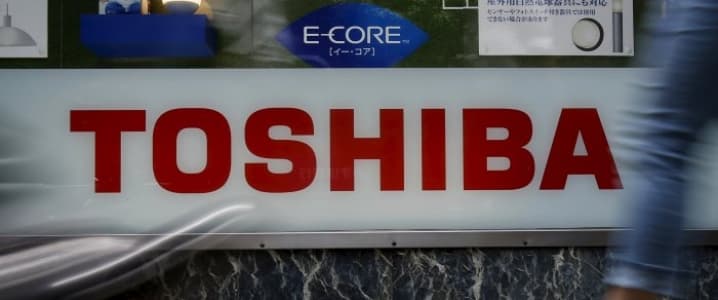In a widely-expected move, Toshiba’s troubled nuclear construction business Westinghouse filed for Chapter 11 bankruptcy protection at the end of last month. Now the company is up for sale, after it cost Toshiba some $6.3 billion in asset write-downs, triggering a net overall loss estimated at $9.1 billion for 2016.
The Japanese conglomerate is undoubtedly eager to curb these losses, but it is facing a serious problem: there is not an abundance of bidders.
What some energy industry observes have called a nuclear renaissance for the U.S. has failed to materialize in full. The reasons for this are numerous and diverse, ranging from a slowdown in power demand instead of an expected increase, to cheap natural gas, rendering nuclear’s competitiveness virtually non-existent.
Westinghouse is actually a great case in point: its troubles may not have started with the setbacks in ran into with its two new projects in the U.S., but they certainly became major contributors to its failure. The nuclear plants that the company was building in South Carolina and Georgia both face cost overruns to the tune of $3 billion each. It’s unclear whether they will ever be completed, by Westinghouse or anyone else.
The prospects for the company’s plans to build several more plants featuring its new AP1000 reactor technology in the U.S. look grim—all the more so as there is new competition emerging from small modular reactors. Theoretically, these could kick Westinghouse out of business for good as they are cheaper to build and install. Related: Wall St. Gears Up For The World’s Biggest Oil Trade
With Europe increasingly turning green instead of nuclear, there is a definite shortage of buyers, at least buyers that Toshiba and Washington would like to do business with. Alas, it seems that the most likely suitors would come from a country that bothers both the U.S. and Japan – China.
China has grand nuclear plans: 21 new reactors under construction, on top of 36 already operating. There are also several more planned to be built. It has the money and the fuel, but China is behind Western companies in terms of technology. It has made clear its interest in Westinghouse a log time ago, including covertly, through espionage.
This makes Westinghouse a perfect fit for Chinese nuclear plant developers, but a deal might never materialize, for several reasons. First, no Chinese company has yet approached Toshiba as a bidder. Second, the Trump administration is unlikely to turn a blind eye on such an acquisition, what with the trade deficit and China’s progress toward becoming the biggest superpower in the world. Third, Japan would be even unhappier with such a deal, so it might try to block it, should it even be suggested. Related: Oil Prices Pull Higher On Outage In Libya’s Biggest Oil Field
Now, logic suggests that a Chinese bidder will appear – the question is when. On the other hand, the U.S. has a pretty simple mechanism to block an undesirable sale on the grounds of national security. This mechanism is called the Committee on Foreign Investment in the U.S., which can recommend a blocking of a deal that President Trump will only be too happy to sign.
Against this background and Trump’s clearly demonstrated determination to take a tough stance on all things Chinese, companies from Asia’s largest economy might not even bother with approaching Westinghouse.
The problem, for Toshiba mostly, but also for the U.S., is that Westinghouse must be sold. So, members of the Republican administration are looking for buyers, sifting through possible suitors with extreme care lest any of them turn out to be linked to China. There is also another option: partial nationalization like the one that happened to big banks after the 2008 crisis.
Whatever option Washington chooses, bilateral relations with Beijing are unlikely to move into a more positive territory.
ADVERTISEMENT
By Irina Slav for Oilprice.com
More Top Reads From Oilprice.com:
- Oil Markets Turn Bullish Amid Spiking Geopolitical Risk
- Is Another Bust Looming Over The Oil Industry?
- Wall St. Gears Up For The World’s Biggest Oil Trade



















It is also worth pointing out that these tremendously failed reactors in SC and Georgia are modular. This was one of Westinghouse big promises around them. They would have components fabricated in the factory rather than on site and then snapped together like giant legos. Turns our reactors are not like legos and this strategy contributed to the tremendous cost overruns for these plants.
There is no savior for these failed plants, unless Westinghouse and the regional utilities are able to do what so many reactor projects in the past have done, which is to put the open ended loses and delays on to the rate payers and tax payers, while they stumble towards completion. If Westinghouse is really lucky, the same corrupt politicians which granted CWIP will allow them to rob the public again.